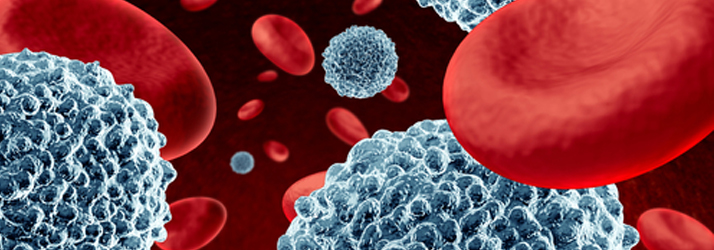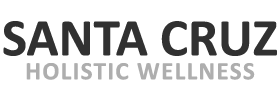Dietary Lifestyle For Hypertension in Scotts Valley CA

Elevated blood pressure is a major risk factor for a heart attack or stroke. In fact, Scotts Valley CA chiropractic clinic knows that it is generally regarded as the greatest of a risk factor for a stroke. Over 60 million Americans have high blood pressure.
The blood pressure denotes the resistance produced each time the heart beats and sends blood coursing through the arteries. The peak reading of the pressure expected by this contraction is the systolic pressure. Between beats, the heart relaxes and blood pressure drops. The lowest reading is referred to as the diastolic pressure.
What Is A Normal Blood Pressure In Scotts Valley CA
A normal blood pressure reading for an adult is:
- 120 (systolic) / 80 (diastolic)
High blood pressure is divided into different levels:
- Borderline (120-160 / 90-94)
- Mild (140-160 / 95-104)
- Moderate (140-180 / 105-114)
- Severe (160+ / 115+)
Since over 80% of patients with high blood pressure are in the borderline to moderate range, most cases can be brought under control through changes in diet and lifestyle. In fact, in head-to-head comparisons, many non-drug therapies – such as diet, exercise, and relaxation – have proven superior to drugs in cases of borderline to mild hypertension.
Another strike against drugs is the increasing evidence indicating that they may be doing more harm than good. In some people, these may be producing the very things they are trying to prevent; a heart attack. Several well-designed long-term studies have found that people who take blood pressure-lowering drugs (typically diuretics and/ or beta-blockers) actually suffer from unnecessary side effects (e.g. fatigue, headaches & impotence), including an increased risk of heart disease!
Virtually every medical authority (textbook, organization, journal, etc.) including the Joint National Committee on Detection, Evaluation, and Treatment of High Blood Pressure, has recommended that non-drug therapies be used in the treatment of borderline to mild hypertension. The drugs carry no benefit, yet they possess significant risks. The 2 most definitive trials, the Australian & Medical Research Council Trials, as well as 5 other large trials, including the famous Multiple Risk Factor Intervention Trial, have shown that drugs offer no benefit in protecting against heart disease in borderline to moderate hypertension.
Dietary and Lifestyle Factors in High Blood Pressure
High blood pressure is closely related to lifestyle and dietary factors. Some of the important lifestyle factors that may cause high blood pressure include:
- Coffee Consumption
- Stress
- Smoking
- Lack of Exercise
- Alcohol Intake
Some of the dietary factors include:
- Obesity
- High Sodium to Potassium Ratio
- Low Fiber
- High Sugar Diet
- High Saturated Fat Diet
- Low Intake of Essential Fatty Acids
- A Diet Low in Calcium, Magnesium & Vitamin C
Some Specific Dietary Recommendations
Next to attaining ideal body weight, perhaps the most important dietary recommendation is to increase the consumption of plant foods in the diet. Vegetarian and Mediterranean diets emphasize fresh fruits and vegetables and minimize the consumption of saturated fats, contributing to lower blood pressure. Vegetarians generally have lower blood pressure and a lower incidence of cardiovascular diseases than non-vegetarians do. A vegetarian’s diet typically contains more potassium, complex carbohydrates, essential fatty acids, fiber, calcium, magnesium, vitamin C, less saturated fat, and refined carbohydrate, all of which have a favorable influence on blood pressure.
Special foods for people with high blood pressure include:
- Celery (for its 3-n-butyl phthalate content found to lower high blood pressure by 2 researchers at the University of Chicago Medical Center)
- Garlic & Onions (for their sulfur-containing compounds)
- Nuts & seeds for their oils (for their essential fatty acids).
- Cold-Water Fish (salmon, mackerel, etc. for their 3-omega fatty acids)
- Green Leafy Vegetables (as rich source of calcium & magnesium)
- Whole Grains & Legumes (for their fiber)
- Foods Rich in Vitamin C (such as broccoli, citrus fruits & kiwi)
Cantaloupe, winter squash, potatoes, broccoli, orange juice, - Some Fresh Fruits & Milk (for hefty amounts of potassium)
- Nuts, Brown Rice, Molasses, Milk, Wheat Germ, Bananas, Potatoes & Soy Products (for their magnesium.
Various studies performed around the world have been made on the above-mentioned foods as they relate to blood pressure. These foods have actually been shown to help lower high blood pressure.
Weight Loss
Weight loss is the most important lifestyle change one can make. If you are overweight, your pressure should drop 5 points for every 10 pounds you lose.
Alcohol
Alcohol can raise blood pressure significantly. Five or more drinks a day boosts systolic pressure by about 5 points – diastolic by about 3 points. I urge my patients to have no more than 2 drinks a day (preferably wine).
Exercise
Regularly exercising properly, can help to lower and maintain blood pressure. I recommend at least 20 minutes of walking, bicycling or swimming at least 3 days a week.
Thomas Pickering, M.D.
Mount Sinai Hospital, New York City
Author: Good News About High Blood Pressure
Diet
A study sponsored by the National Institute of Health (NIH) showed that a low-fat diet rich in fruits and vegetables could lower even moderately high blood pressure without the need for medication. It found that people who stick to their regimen generally experience a 7-10 point drop in blood pressure. Your meals should include fresh vegetables, beans, nuts, and whole grains. Eat high potassium foods such as apples, bananas, asparagus, cabbage, tomatoes, kelp, alfalfa.
Salt
Sodium can be reduced in your diet, but never eliminated. We need sodium for many functions in the body. One ingests less sodium if you salt your own food compared to eating processed foods loaded with sodium from the manufacturer. So don’t be afraid to sprinkle some salt on your food occasionally. Just minimize your consumption of chips, canned soups, corned beef, hot dogs and other salty foods like smoked meats, cheeses, and packaged foods.
Salt substitutes are a great way to limit sodium consumption as they usually substitute potassium for sodium. A good salt substitute is Cardia Salt Alternative, which tastes like ordinary salt. Ounce for ounce, it contains half the sodium, along with extra potassium and magnesium, which are believed to have a beneficial effect on blood pressure.
Marvin Moser, M.D.
Yale University School of Medicine
President of the Hypertension Education Foundation
Author: Clinical Management of Hypertension
Coenzyme Q10, or CoQ10, is also known as ubiquinone. It is an energy producing compound that is normally produced in every cell of your body. However, in patients with hypertension, 40% have been found to be deficient in this important nutrient for proper cellular metabolism. Several studies have shown that when these patients took CoQ10 , their blood pressure was consistently lowered. A typical dosage for an average size person 100mg per day for 4 to 12 weeks of therapy to see appropriate changes. A larger person can double the daily dosage.
Over sixty double-blind studies have demonstrated that taking omega – 3 fatty acids also in supplement form, lowers blood pressure. Altho the fish oils have typically produced a more pronounced effect, flaxseed oil is acceptable as a substitute if one is allergic to fish or the fish oil causes mild digestive symptoms. For example, one tablespoon per day of flaxseed oil should lower both systolic and diastolic readings up to 10mg Hg
The two most popular herbal recommendations for lowering blood pressure are:
- garlic and hawthorn based on several studies. It usually requires at least 2 to 4 weeks before the hawthorn extracts begin to exert any effect.
Other Considerations If Necessary
Relaxation techniques, such as deep breathing exercises, biofeedback, yoga, progressive muscle relaxation, transcendental meditation, and hypnosis, have all been shown to have some value in lowering blood pressure.
Chronic exposure to heavy toxic metals, such as lead or cadmium, from environmental sources including drinking water and beer, is associated with high blood pressure and increased cardiovascular mortality.
Proper diagnosis and management of high blood pressure should be supervised by a health care professional. Health comes from within, (the body), not from a man-made pill containing foreign chemicals. Organic whole food is your best medicine!
Greg N. McNabb, B.S., D.C.
Board-Certified Chiropractic Orthopedist
OFFICE HOURS
Monday
10:00am - 6:00pm
Tuesday
10:00am - 3:00pm
Wednesday
10:00am - 6:00pm
Thursday
10:00am - 6:00pm
Friday
10:00am - 3:00pm
Saturday & Sunday
Closed
Santa Cruz Holistic Wellness
5437 Scotts Valley Dr
Scotts Valley, CA 95066




